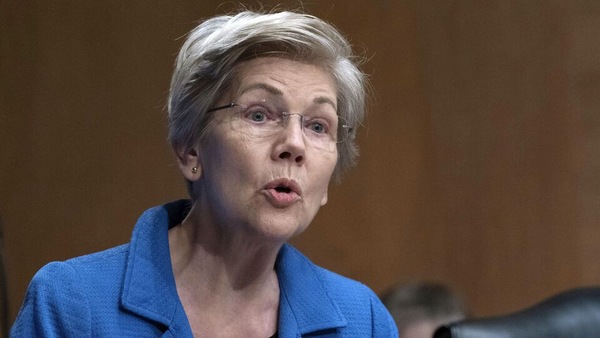Sen. Elizabeth Warren Seeks Information From First Republic’s Former CEO

- Team OTTplay
LiveMint
Last Updated: 08.27 PM, May 15, 2023
Sen. Elizabeth Warren (D., Mass.) has written to the former chief executive of failed First Republic Bank asking for more information on his and other executives’ pay, their support for rolling back bank regulations and management practices ahead of the bank’s collapse.
“You owe your customers and the public an explanation for the decisions that resulted in the costly failure of your bank,” Ms. Warren wrote to Michael Roffler, the CEO when the bank collapsed.
Earlier this week, First Republic was seized by regulators, who struck a deal to sell the bulk of its operations to JPMorgan Chase. Its collapse was the second-biggest bank failure in U.S. history, behind the 2008 collapse of Washington Mutual, and also spelled the end of what was considered one of banking’s most successful strategies: attracting wealthy depositors and giving them five-star service.
The San Francisco-based bank lost $100 billion in deposits in a March run following the collapse of fellow Bay Area lender Silicon Valley Bank. First Republic’s failure was set off by the Federal Reserve’s rapid series of interest-rate increases, which led depositors to seek better returns elsewhere.
Ms. Warren, whose work on federal banking policy dates back to the 2008 financial crisis, posed a dozen questions to the former CEO, focused on Mr. Roffler’s awareness of problems at the bank before it fell apart, pay practices and stock sales, and lobbying for the 2018 law that raised the threshold for the Fed’s most vigorous oversight to $250 billion in assets from $50 billion. She asked for a response by May 17.
Mr. Roffler couldn’t be reached for comment.
A long-serving member of the Senate Banking, Housing, and Urban Affairs Committee, Ms. Warren isn’t the chairwoman and doesn’t have subpoena power. But she has tended to use the platform the committee affords her to elevate financial-policy issues following years in the trenches studying banking regulation.
Mr. Roffler, a longtime bank insider, was elevated to the CEO position in early 2022, months after founder James Herbert II stepped away from the position for a temporary medical leave due to heart issues. Mr. Herbert later returned as executive chairman.
“When did you first become aware of potential problems at First Republic Bank?” Ms. Warren wrote, asking whether the bank had received letters from federal regulators about interest-rate or other risk and asking for a list of all such letters, any problems cited and the bank’s response. She also asked if the risk-management officer had warned about risks stemming from higher interest rates.
The Wall Street Journal previously reported that Mr. Herbert, the 78-year-old founder, had declared during an all-hands meeting before the March panic that the bank needed more deposits. The Journal said that in late 2022—when the Fed’s interest-rate-increase campaign was under way—First Republic had slowed hiring and was replacing few employees who left.
“Are these reports accurate?” she asked.
Many of Ms. Warren’s questions focus on the bank’s lobbying to roll back provisions of the 2008 Dodd-Frank law, as well as to weaken separate proposed banking regulations. Ms. Warren had led the panel created by a 2008 bank-bailout law designed to oversee funds to stabilize the financial system and to evaluate the need for changes in banking regulations following the crisis.
Her letter, which referenced public reporting, noted donations by Mr. Herbert to Republican groups, particularly those supporting Senate Republicans. She also asked how many meetings bank executives had with lobbyists and lawmakers, how much the bank spent and whether lobbying efforts were discussed with the bank board.
She highlighted a letter in which Mr. Herbert called the bank well-capitalized and warned that proposed new regulations requiring higher capital would harm the bank.
Ms. Warren, who is sponsoring legislation requiring federal regulators to claw back all or part of compensation received in the five-year period preceding a bank failure, also asked about executive pay in the period leading up to the bank’s collapse, including in the form of bonuses, and for details about any consulting arrangements between the bank and executives. She also sought details about stock sales by executives and asked whether officials would be returning any of the proceeds.
The Journal previously reported that top bank executives sold millions of dollars of stock in the months before bank shares plummeted during a panic over the health of regional lenders. Mr. Herbert had sold $4.5 million worth of shares since the start of the year, while Mr. Roffler had sold nearly $1 million in January, the paper reported. In that Journal report, a First Republic spokesperson said the bank and its executives declined to comment on the sales. A spokesman for Mr. Herbert said his sales were consistent with his annual estate planning and philanthropy.
Separately, the top Democrat and Republican on the Senate Permanent Subcommittee on Investigations sought records from KPMG over its audits of First Republic and two other collapsed banks, Silicon Valley Bank and Signature Bank.
“As always, the firm will cooperate with any governmental inquiry, including any request for information regarding the relevant auditing standards,” a KMPG spokesman said in a statement. “The firm continues to stand by its audits, which were conducted in accordance with those professional standards.”
